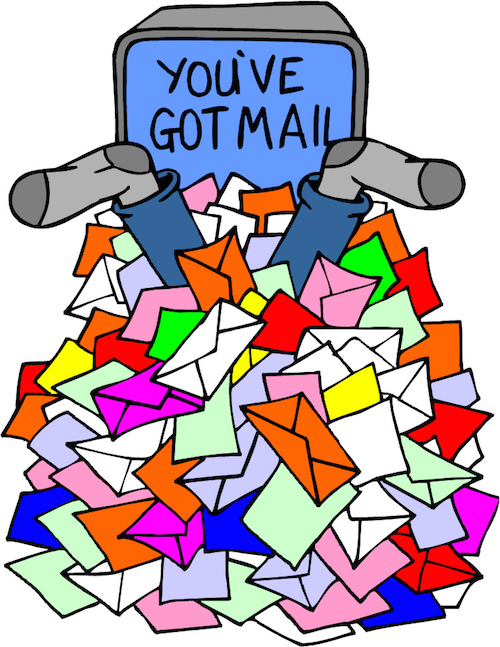Over the course of the year, along with learning how to market books, I’ve picked up a few tips about how to market yourself. After all, the hiring process (which we are all heading toward!) is usually just marketing your skill set to an employer’s needs. One of the keys to success in the quest for employment—whether finding a new job or retaining your current one—is undoubtedly professionalism. It’s almost like good design; it’s recognized by a few when it’s good and noticed by all when it’s not. So, I think it’s time to get down to brass tacks and talk about professionalism and email.
Emails are the bacon fat clogging my productivity levels, and I bet they are clogging yours too. Sticking to the successful formula of the Four Cs of Copyediting, I’ve come up with my own Four Cs of Emailing.
- Clarity — This seems straightforward, but making your point and making it as clearly as possible is supremely important when dealing with hundreds of emails per day. This applies to both text and organization. So when you can, enumerate your points, make a bullet list of deliverables, and otherwise use a messaging hierarchy to call attention to the pressing details of your email.
- Coherency — Yours. Are you thinking straight? This means, are you angry or annoyed? That tone rarely works in your favor, and often you end up saying things you wish you didn’t. When you get a message or have an interaction that you think requires a, let’s say pointed, response, I highly recommend NOT sending it. If you need to get your thoughts out in email-cum-journaling, save it as a draft, shut down your computer, and look at it again in a couple hours.
- Concision — This means cut down on your use of Reply All and CC in order to declutter inboxes. Ask yourself, does anyone need to know my response to this email? Will my response affect the work of another person in this email chain? Based on what I have to say, is there someone who is not included who should be? If I don’t use Reply All, will I need to repeat myself? Is the information useful to someone else? Is the information of a more personal nature (isolated from colleagues in the email chain) where I can reply to only a single boss or comrade? Will my reply confuse people who don’t need to take any action? Have I been explicitly asked to include a colleague in my communications?
- Correctness — Be a professional, both in person and online. Grammar, tone, prioritization, and interface matter regardless of the communication form. Taking a lesson from the unfortunate woman who was fired for sending an email in all capital letters, the way you compose your emails is just as important as the content within.
Don’t get me wrong, email is great. It allows for instant communication and the archiving of conversations, and it cuts down on the number of face-to-face meetings that eat the narrow holes of “free time” in our calendars. But we all know the feeling of opening up your inbox, trying to wade through your emails, only to reemerge and realize two hours have passed. It’s up to us to make the emailing process as enjoyable and efficient as possible. Be courteous, be considerate, and above all, be professional. Now get out there and write some emails!

